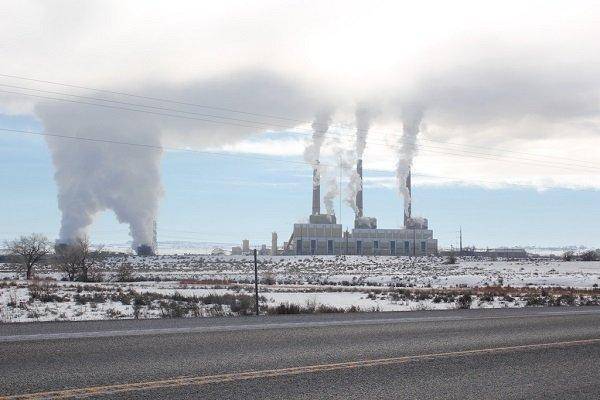Over a year ago, in mid-April, the Carbon Power Plant’s lights were turned off, its doors closed and steam ceased from its stacks.
Since that time, the black material from which Carbon County derives its name has been assessed and attacked in what has been christened as the “War on Coal.” With attacks at power plants and emissions being fired from various fronts, the future of Castle Country has seemingly grown bleaker and bleaker.
That is, until Wednesday at the University of Utah.
According to a University of Utah press release, U.S. Assistant Secretary of Commerce for Economic Development Jay Williams made an announcement Wednesday that would shine a light in the darkness surrounding many locals caught in the war’s crossfire.
A total of $790,118 was awarded to the university’s “Coal Pitch Technical Plan.” “The project will evaluate the feasibility of converting coal pitch to carbon fibers to produce lightweight, high-strength composites that are increasingly in demand by manufacturers in automotive and other sectors,” according to a fact sheet from the White House.
“It’s that investment in coal, not just talk, that we’ve been looking for,” said State Representative Brad King, who was present at Wednesday’s announcement.
Representative King has spent much time and effort in the project, starting nearly a year and a half ago when, curious of a separate program, he contacted an individual by the name of Andrew Buffmire.
Upon meeting Buffmire, Representative King asked if he knew a woman by the name of Judy with the same last name as he had known Judy, a colleague, for many years. Upon finding that Andrew knew Judy, he and Andrew proceeded to discuss Carbon County as Judy had lived in the area for a number of years.
Fast forward to several months ago when Representative King received a call from Andrew with some welcome news.
“He called me and said, ‘Hey, I am working with a group of scientists up here at the University of Utah who have a project that is a Carbon County sort of project I thought you might be interested in.’”
The group of scientists Andrew was referring to were studying, with other universities, the process of turning carbon pitch, or coal pitch, into carbon fibers.
“It’s just a remarkable material that is lighter and stronger than steel,” Representative King said. The fibers are used to make carbon composite materials and, subsequently, a wide variety of items including car parts, sporting goods, rotors on helicopters and many others.
The technology to make the fiber had already been discovered and including burning the coal in the absence of oxygen to make coking coal, a substance used in steel production. Part of the byproducts from the process is a carbon pitch, which is then used to make the carbon fibers.
“The pitch can then be spun into carbon fibers used to produce a composite material that is strong and light,” according to the university’s press release.
Andrew relayed the interest of the scientists in further studying the work. He had turned to Representative King in reference to the POWER Initiative Grant from the Obama administration which were solely available to counties impacted by the decline of the coal market.
The state representative acted to help connect Andrew and several local leaders to help the process. After a time without hearing anything back, suddenly the call came with a welcome message, “we got it.”
The grant, which totals over $750,000 will be added to other funding to reach a grand total of $1.6 million, according to information from the University.
Scientists from the University of Utah, Utah State University, Brigham Young University, the University of Kentucky, and other federal agencies will now be working toward the goal of studying what the university has called “cost-effective, carbon-friendly methods” of producing carbon fibers.
Another concern for those involved is finding any benefits from using Utah’s coal in the process. Scientists are similarly working to find if Utah coal proves to assist the process in making it easier, less expensive or resulting in a stronger product.
“And if any of those three things are possible, then we really have something,” Representative King said.
If the coal proves to be useful, many opportunities could logically follow for the area, according to Representative King including supplementary jobs such as packaging, shipping and others.
“At least this exists,” King said, “and it really does give us some encouragement for the future of the coal industry without the complications of the emissions.”
“It is just such a neat thing, for possibility for the future,” he further said, “and as we watch the mining sector shrink around us, it is just so exciting to think that we might have something that would bring a renewal to our area.”
“For a guy with coal in the veins,” Representative King said, “this is pretty exciting and anybody who lives here has got a little bit of that, I think.”

